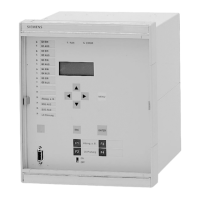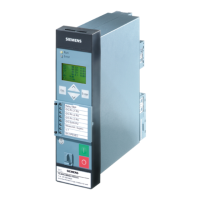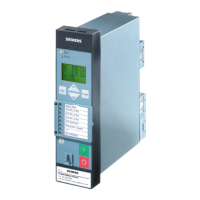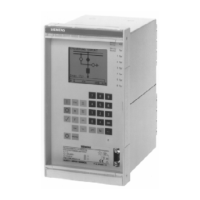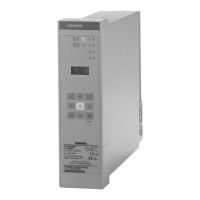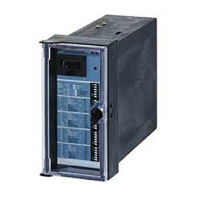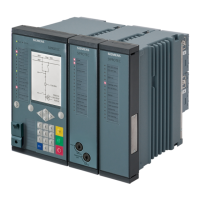Functions
6-196 7SA522 Manual
C53000-G1176-C119-2
Note:
The distance can only be applicable in the form of kilometres, miles or percent
if the relevant line section is homogeneous. If the line is composed of line sections with
different reactance per unit length characteristic, e.g. overhead line–cable sections,
the reactance calculated by the fault location function can be subjected to a separate
computation to derive the distance to fault.
Correction of
measured values
on Parallel Lines
In the case of earth faults on double circuit lines, the measured values obtained for
calculation of the impedance are influenced by the mutual coupling of the earth imped-
ance of the two parallel lines. This causes measuring errors in the result of the imped-
ance computation unless special measures are taken. The device is therefore provid-
ed with a parallel line compensation function. This function takes the earth current of
the parallel line into consideration when solving the line equation, thereby compensat-
ing for the coupling influence as was the case with the derivation of the distance by
the distance protection (refer to Sub-section 6.2.2 under “Correction of measured val-
ues for Parallel Lines” and Figure 6-23). The earth current of the parallel line must, of
course, be connected to the device and the current input I
4
must be configured accord-
ingly during the setting of the plant data (Sub-section 6.1.1 under “Current Trans-
former Connection”).
The parallel line compensation only applies to faults on the protected feeder. For ex-
ternal faults, including those on the parallel line, compensation is impossible.
Correction of meas-
ured values for load
current on double-
end fed lines
When faults occur on loaded lines fed from both ends (Figure 6-96), the fault voltage
U
F1
is influenced not only by the source voltage E
1
but also by the source voltage E
2
,
when both voltages are applied to the common earth resistance R
F
. If not corrected,
this will result in inaccuracies in the calculated impedance, since the current compo-
nent I
F2
cannot be seen at the measuring point M. For long heavily loaded lines, this
can give a significant error in the X–component of the fault impedance (the determin-
ing factor for the distance calculation).
A load compensation feature is provided for the fault location calculation which cor-
rects this measurement inaccuracy. Correction for the R–component of the fault im-
pedance is not possible; but the resultant inaccuracy is not critical, since only the X–
component is critical for the distance to fault indication.
Load compensation is effective for single–phase faults. For single–phase to earth
faults, positive and zero phase sequence components of the symmetrical components
are used in the compensation.
Load compensation can be switched on or off for the fault locator (address 3806, /RDG
&RPSHQVDW). Off-switching is useful, for example, during relay testing, in order to
avoid influences caused by the test quantities.
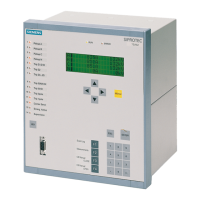
